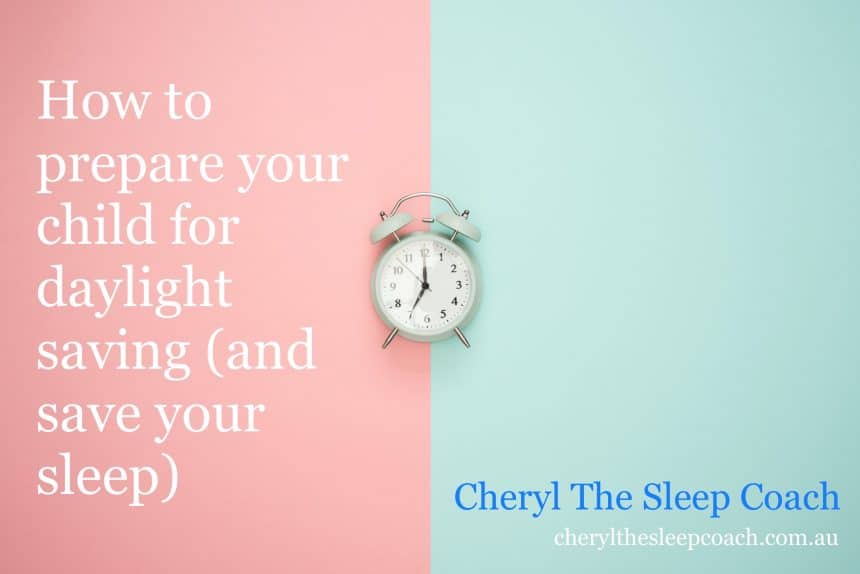Get ready to spring forward into daylight savings.
If your baby is younger than four months old, she will most likely adjust naturally within a few days, leaving you no need to worry at all. If your child is over 5-6 months old, on a strict feed and sleep schedule, or sensitive to changes, you might want to start adjusting your whole routine NOW, before we turn the clock forward.
Adjusting to time change
While adults find it easier to adjust to the change, some children will struggle, and by preparing early for the change, you are already on the right track! We all know too well how precious every hour of sleep is.
How it may affect your child (and you)
Both adults and children tend to sleep better and more deeply in cooler temperatures. Even if it varies from person to person, a good temperature to aim for is 20°C. So make sure you compensate a little for the warmer weather by dressing your baby or child appropriately, as being too hot might make her sleep restless. Many of my clients are battling with their children waking early at the moment. This is completely normal, as our sleep rhythm is affected by the sun and light. The shorter night sleeps may affect the day nap slightly, so this is another good opportunity to adjust your schedule, so your baby isn’t exhausted at night-time.
Plan ahead and take baby steps
When making adjustments to your child’s schedule, the trick is to make small adjustments gradually and to start as early as possible – start today! This will assist your child to transition into place when the clocks change. Any drastic changes to your child’s sleep routine from one day to the next will almost guarantee the risk of leaving you with a cranky child with all the challenges we’re desperately trying to avoid.
Moving your baby’s schedule
With a bit of planning you can successfully move your baby’s schedule in the next week. By transitioning slowly and starting early, you can move your baby’s whole routine by one hour before the time change. For example: If your baby normally goes to sleep at 6pm now, and you’d like her to go to sleep at 6pm after the time change, you should start by adjusting her whole routine, including meal, play and day naps by 10-15 minutes every 2-3 days, so when the clocks go forward your child is in sync.
If you decide to not go the slow gradual way: Keep an eye on your baby’s bedtime, and if needed, make the changes as quickly as possible so daylight saving doesn’t affect everyone’s sleep. Whichever way you choose to the approach daylight saving, remember a child that doesn’t have enough sleep is an unhappy and cranky child.
Enjoy the longer days. Good luck!


